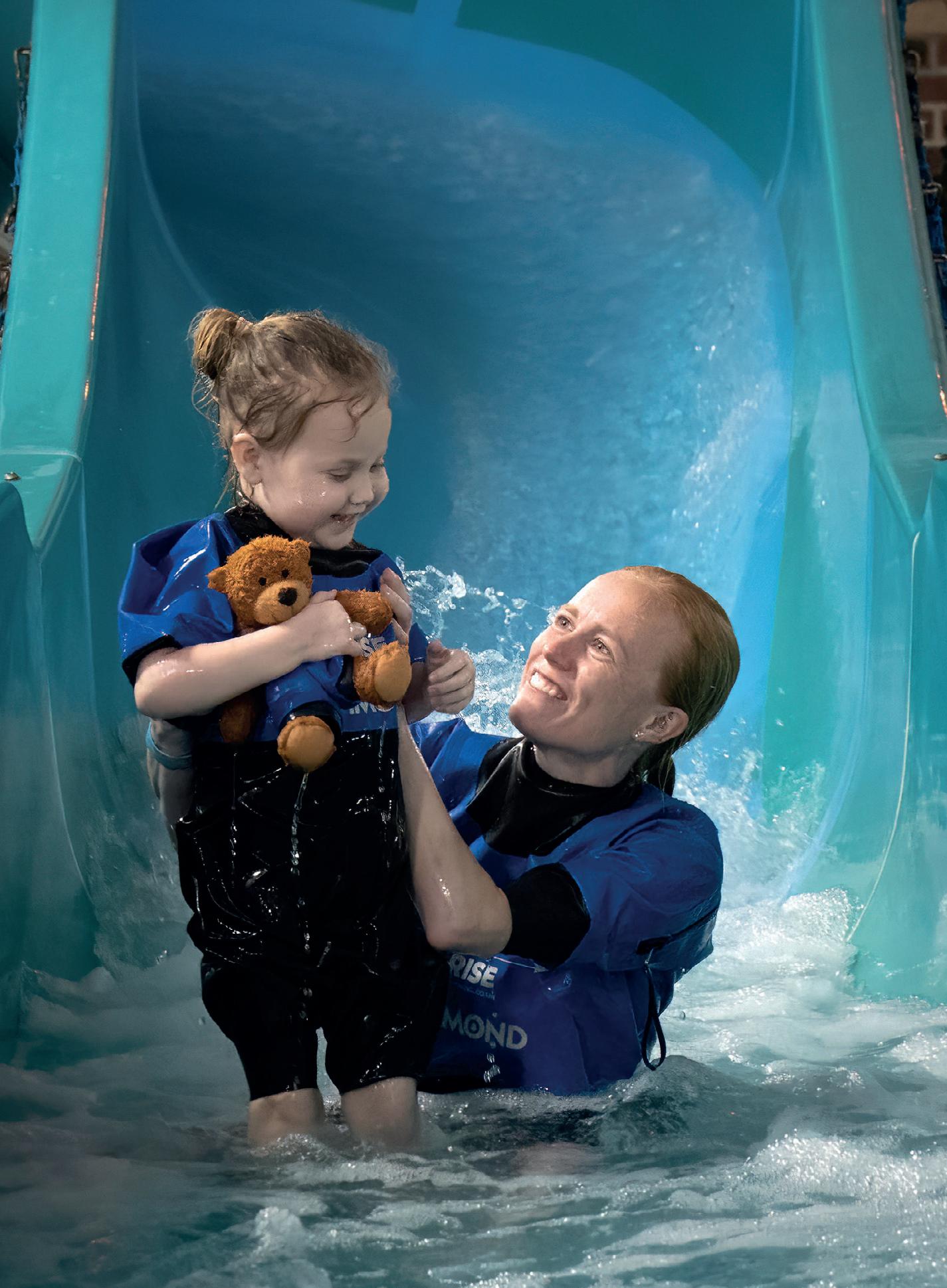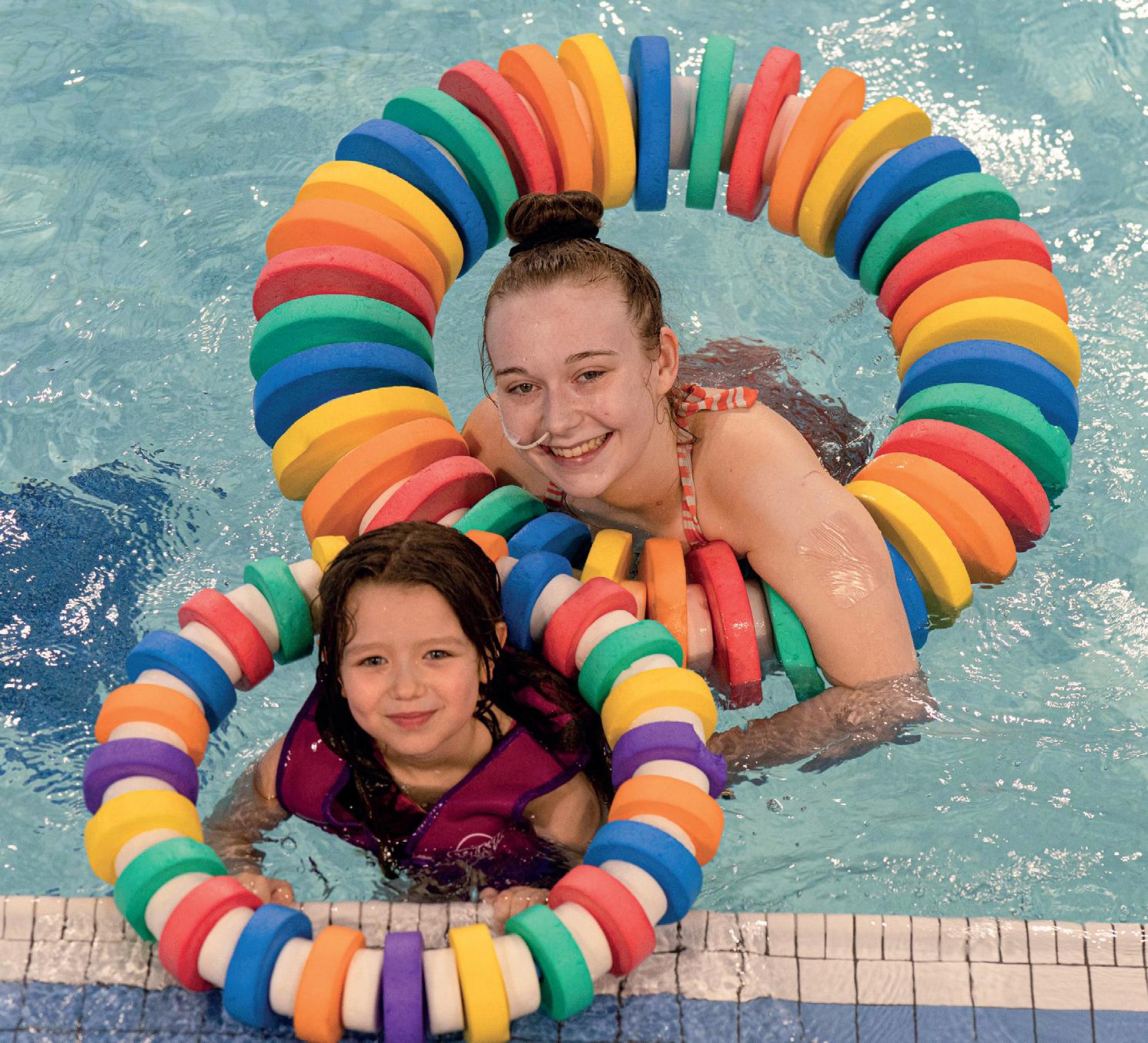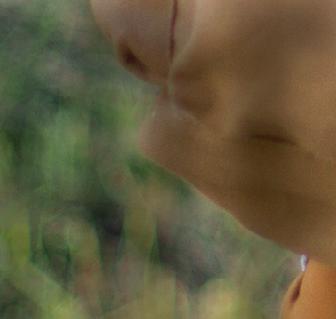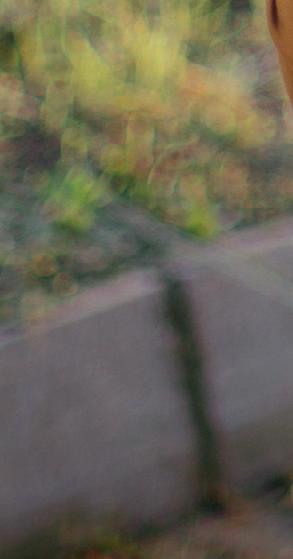
3 minute read
INCLUSIVITY
Health Needs
It was a devastating blow. Purkis said: “I was desperate to get back in the water again, so we did our own research.” In summer 2016, Purkis bought a madeto-measure Hammond drysuit to keep her central line safe and dry in water. “The first time I used the drysuit was on a Mediterranean cruise. It was brilliant and although I got funny looks, I loved it. I remember being quite emotional about in the water again. I don’t remember feeling scared, just excited.”
Advertisement
Eight years on Purkis has scuba-dived under ice, learnt to solo paraglide and gone cliff camping. She also plays golf, rides her horse and swims. Next month, the inspirational charity boss is learning to surf.
But she stressed: “I’m not a daredevil, as in I wouldn’t take unnecessary risks. So, if I swam in the sea, on holidays or went scuba diving, I wore the drysuit. It wouldn’t be safe for me not to.”
She added: “You either keep your line safe or end up in hospital with an infection that could lead to sepsis, so you can see why people are protective.”
In 2021, after trialling various dressings, Purkis discovered Cath Dry, a water-resistant clinical dressing for central venous catheters and similar lines that can reduce the risk of bacterial infections.
“The drysuits are fantastic and allow you to swim safely, but the dressing took this a step further and allowed me to feel the water all over my skin. You also have the freedom of being in the water without wearing a big suit. I wear both now,” said Purkis, adding her NHS consultant fully supported her swimming with these precautions.
Purkis set up FEAR to help others who are artificially fed. “It’s about showing people that they can still enjoy sport and activity. Boost their wellbeing, confidence and self-esteem. Swimming is possible with a central line and feeding tubes!
“Central lines are used for chemotherapy and dialysis too, so we are getting more and more requests from families who’d like to borrow a drysuit for their child who is battling cancer. The demand is huge.
“FEAR events are not about taking risks or proving people wrong. They’re about socialising, being together, happiness and escapism from their health for a few hours.”
Meanwhile Places Leisure has hailed Purkis as one of their Swimming All-Stars and heroines for showing “an inner strength that can only be described as extraordinary” and “embracing the latest medical technology to get back in the water and get her mojo back”.
Mark Haslam, head of swimming and sport at Places Leisure, said: “Our partnership with Kim Purkis and FEAR just made sense. We want to bring swimming and more generally fitness to everyone we can. Putting the right sessions, instructors and equipment in place to allow some people to swim for the first time is just fantastic to see. We can’t wait to keep putting on these sessions and expanding them across the country.”
Swimming is just a start. FEAR is now launching multi-activity days with sailing, rock climbing, canoeing and archery. “I’d also like to introduce horse riding, paddleboarding, and many other sports,” said Purkis.
Being tube fed has a massive impact on people’s lives yet there is little support. “People’s lives are hugely impacted by not being able to eat and drink. Socially, physically and psychologically,” said Purkis.
Dinner invitations stop. People who are tube-fed need to think about whether it’s possible to take their feed out to social events. Some prefer to stay home while connected. “Physically they now have tubes in their bodies, which is a huge deal. It’s very hard to suddenly look in the mirror and see scars and tubes. We have a mental health team on board, which is run by two NHS mental health nurses. They support people with coping strategies,” said Purkis. Her charity has also donated more than 4,000 teddy bears worldwide in a bid to comfort people.
What are Purkis’s hopes for the future? “My hopes are huge just because I would like to help as much as I can. I’d love to offer swimming to more places around the country. I want to offer more activities and sports. I’d like to have more drysuits, so that we can help more people.”
Today she gets a buzz seeing families enjoying the swim session at Eastleigh’s pool. “To look around and see happy, smiley faces is very fulfilling. I love it that families come back. That’s always a good sign that events are successful and a fun place to be.”

For more information see the charity’s website: www.faceeverything.co.uk

By Patrick Appleton













